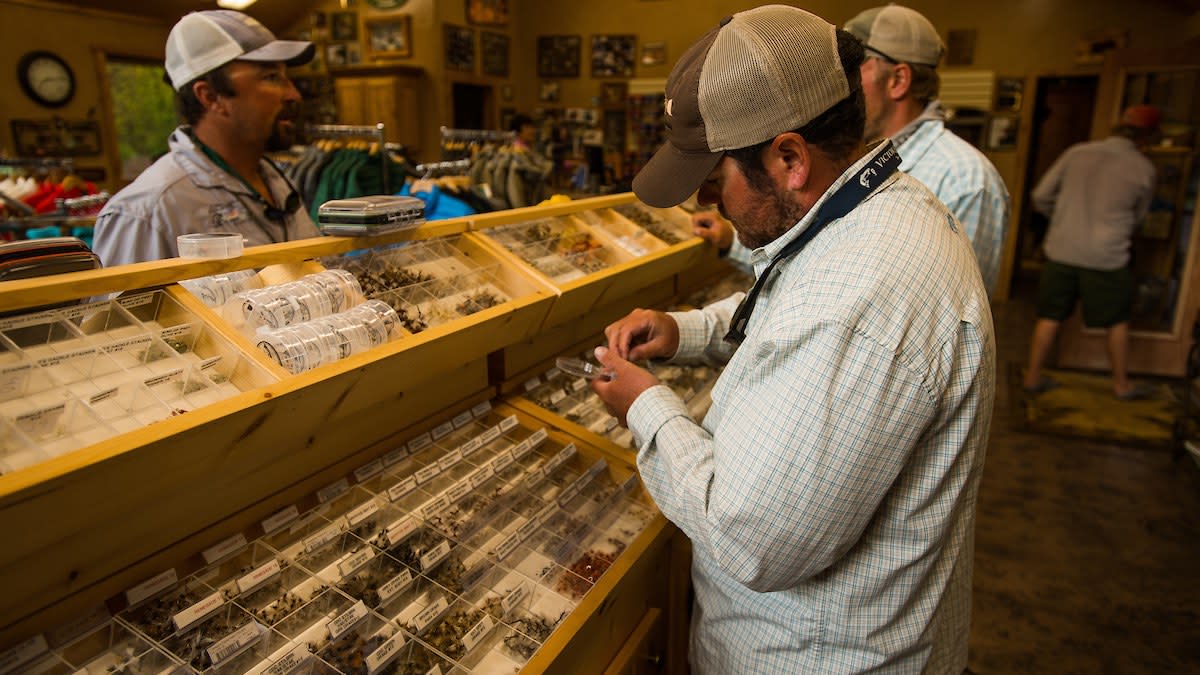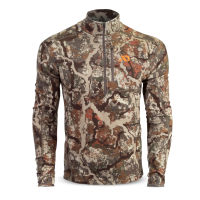
Cancelled bookings. Non-essential business status. Halted manufacturing. Closed boat ramps. No customers coming in the door. With quarantines and shelter-in-place orders in effect throughout the country, many outdoors businesses—from guides to gear shops to booking agents—are hemorrhaging cash just to keep the lights on. Many fear going under.
Businesses and individuals across the U.S. economy, from Wall Street to corner convenience stores, are struggling. With travel restrictions in place, stock indexes down, and consumers unsure about their next paycheck, fewer dollars are flowing. While you could argue a stack of new arrows is essential at times, it’s probably not as essential as paying rent or stocking up on toilet paper right now.
Many Americans are closely monitoring the emergency stimulus legislation about to pass out of the Senate that will provide bailouts, loans, debt extension, unemployment benefits, and stimulus checks to companies and individuals. For now, the future is uncertain. We know, self-sufficient outdoors people are uniquely suited to weather this storm as individuals, but what about the businesses and industries that support us?
Jackie Bowman is the co-owner of Cooper Landing Fishing Guide, an outfitter on Alaska’s Kenai River. Their upcoming summer season had mostly booked before the coronavirus outbreak, but now clients are cancelling left and right.
“Families with children are concerned that school will run late; those traveling by plane or cruise ship are worried about their reservations being cancelled or being in close proximity to others; clients from other countries fear they will be turned away at customs,” Bowman said. “Then there are those who are uncertain about or losing their jobs and flat out can’t afford the trip anymore. As a business owner you can hope that people will postpone their trips or reschedule for next year, but not everyone has the means to do so given so much uncertainty right now.
“Every client who has had to cancel has shown a tremendous amount of patience and compassion and I know it isn’t something any of them wanted to do.”
Some outdoorsmen and women are rallying around these businesses to help keep them afloat. Bowman said friends in Anchorage had booked up and paid for several days in September to lend a hand, but those good-faith efforts won’t make up for the large-scale losses they’re sustaining.
Destination fishing guides who rely on traveling anglers aren’t the only ones suffering due to COVID-19. April kicks off the prime striped bass season along the coasts of New Jersey and New York. There, the majority of clients are local, which may seem like a blessing for the charter fleet. But these are two of the most restricted states in the country right now. The vague and shifting government rules about travel, recreation, and contact are making it very hard for the charter industry to operate as the striper bite begins to fire up.
“We’re all trying really hard to get a definitive answer on what we can and can’t do,” said veteran New Jersey-based charter captain Eric Kerber. “At first, most of us assumed chartering is considered a non-essential business, so we can’t run trips. But there’s no one to tell you that’s 100% accurate. In the meantime, people are throwing out all kinds of noise on social media. One captain runs and then gets trashed by others saying, ‘that’s illegal.’ That starts a fight because the captain in question says he’s certain it’s not illegal. I recently heard if there are less than 10 people on the boat it’s OK, but then you can’t find a legitimate source to verify that. With restrictions on gatherings, I find that hard to believe. I’ve heard captains say, ‘my lawyer told me it’s OK to run my business.’ Way I see it, if you need to lawyer up, then you’re not really sure it’s OK.”
So far, Kerber’s clients aren’t cancelling their April dates, holding out hope that they’ll be able to fish, and most have told him not to worry about returning deposits. Many are also offering to pay full rate regardless of whether their trips sails or not, as they understand the financial hardship on Kerber and his family. Likewise, despite how desperately Kerber wants to be on the water, he realizes that health and safety should come first.
“Even if it turns out charter captains can officially run right now, is that the right thing to do? It’s really not,” he said. “Do I want to be that guy? What if I take clients out in April and they all get sick? I’d rather lose a few months and let this virus simmer down. I just hope it’s only a few months.”
Ben Bulis, president of the American Fly Fishing Trade Association, said that the companies he represents are hurting badly. Many of the largest manufacturers are halting production. Many other companies are laying off large portions of their workforce.
“We’re going to feel this for a long time,” Bulis said. “We as an industry have survived things in the past that have been major catastrophic economic events. I do believe that we will survive. But I think the landscape is going to change considerably.”
Bulis encourages sportsmen and women to still seek ways to buy things, if possible, and support the businesses that provide so much for us.
“Our industry’s most important link to the public is our guides, outfitters, and retailers. They’re the front lines, right?” he continued. “You know what it’s like to go to the fly shop and you get to talk to the people and hang out and have that tactile shopping experience. There’s a lot of creative ideas out there, like where you purchase stuff online and they put it on a table out front and it’s sitting there waiting for you. There are ways that we can still go to our brick-and-mortar stores. I mean, we have to, right? They’re the lifeblood of our industry and we need to do everything that we possibly can to make sure that they are still in business whenever this is over.”
Jason Matthews owns Yellowstone Dog Sled Adventures, which takes clients on dog sledding adventures in Montana in the winter and on glaciers near Juneau, Alaska, in the summer. He said the end of their winter season was ruined and their summer season is up in the air due to its reliance on the cruises from Seattle and Vancouver, which may not happen this year.
“My business is having a lot of cancellations,” Matthews said. “I’ve posted a refund and cancellation policy. Most of the people cancelling would not be eligible for a refund by the timelines they agreed to when booking. My gut says refund them anyway. My bank account says reconsider.
“Moving forward, this will be a setback but will not destroy us. We’ve learned over the years to go hard and take a lot of people when the going is good and then live frugally through the hard times. That’s what we did this winter, so now we will be frugal until things turn around.”
Clay Forst operates Stuart Ranch Outfitters in Oklahoma. He’s had several turkey and feral hog hunters cancel trips but is still hopeful the situation will be under control before fall whitetail season rolls around.
“I think everyone is concerned to one degree or another,” Forst said. “We are taking every precautionary measure possible to curb that concern. We are disinfecting our lodge and vehicles fully. I will say though we are playing it day by day with the information we have. There is no reason to risk someone’s health for a turkey.”
In a recent PSA, Andy Mill of the Mill House Podcast suggested that hunters and anglers who want to cancel trips consider leaving their deposit or even full amount with the guide—if you have the means. We can think of that as insurance that those guides will still be in operation next year, which is certainly not assured right now. And you know what? If you reschedule next year, that guide is likely two work doubly hard and take to you to the extra top-secret spot as thanks.
We know that not everyone can or should leave the house or has the spare cash to lend to their local sporting goods store or pay for a hunting trip they can’t go on. But if you can, the MeatEater crew encourages you to stand beside our brothers and sisters in the hunting and fishing community, those great people who sell us bait, take us to the gobblers, shuttle our trucks to the take out, fix our bows and guns, and the countless other services we rely on. Who knows, maybe that good karma will come back in the form of a hefty bass this summer or a stud buck this fall. Whatever you do, remember that we are a community, and we need to look out for each other.
Feature image by Tosh Brown.





